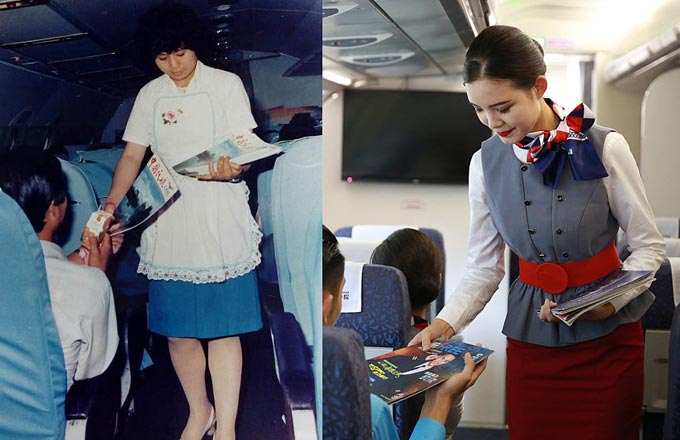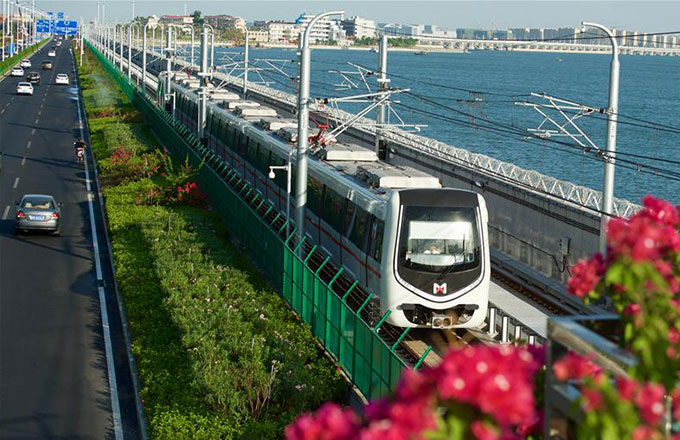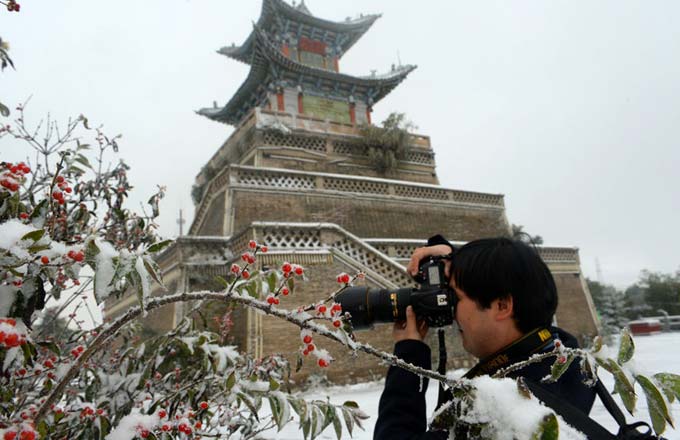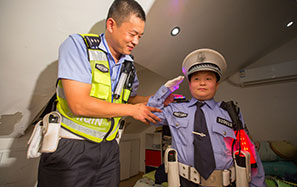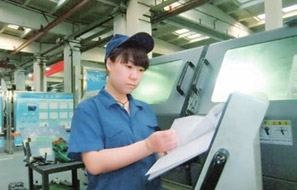A rewarding journey through times long gone, but not forgotten
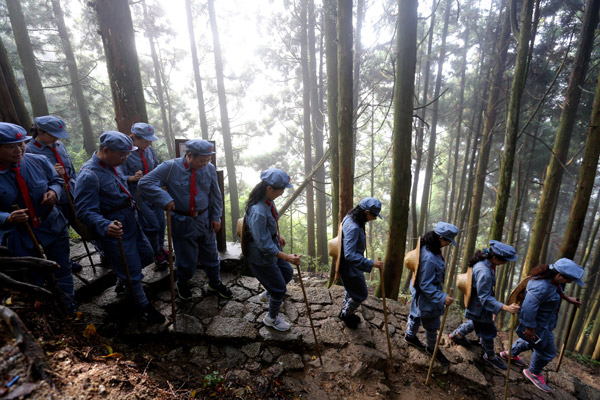 |
|
Students in Red Army uniforms walk a renowned path in Jinggangshan. [Photo by Feng Yongbin/China Daily] |
More than 1,684 kilometers separate Beijing and Jinggangshan, Jiangxi province, the birthplace of the Red Army - the predecessor of the People's Liberation Army - and the home of the Communist Party of China's first rural revolutionary base in the province.
It takes three hours to travel that distance by air, but more than 15 hours by train.
I was shocked by the journey time and the realization that Jinggangshan has not yet been added to the high-speed rail network, which covers almost every corner of the country.
Given the length of the journey and the popularity of online classes, I didn't understand why anyone would wish to visit the city to study CPC history.
Full of curiosity, I took the train to the China Executive Leadership Academy in Jinggangshan on the evening of Sept 18. After spending the entire night on the train and then riding a bus for 40 minutes, I arrived at the academy at noon the next day.
It was the longest rail journey I have undertaken. I shared it with Hao Rong, vice-president of the Central Academy of Drama in Beijing, who was attending classes at the academy.
He didn't regard the journey to Jinggangshan as tough or inconvenient. The 46-year-old had been attending a 21-day training session at the academy, which has three teaching buildings, a library and an exercise area, but an emergency meant he had to return to Beijing, so he cut his visit short.

It was difficult to buy direct train or flight tickets, so his route home took him to Nanchang, capital of Jiangxi, from where he flew to Beijing.
"Yes, absolutely", he said when I asked if the hardship had been worth it. He added that many young people ask themselves if something is worth doing before they undertake it.
"However, judging whether something is worthwhile should lie in whether a person learns something from it, instead of a tough journey," he said. "I think young people should come to see the place before they comment on whether it is worth attending," he said.
Gu Yu, Hao's classmate, agreed, saying the best thing had been meeting and talking with descendants of revolutionary martyrs.
"That made all the training worthwhile!" the 45-year-old said. "I had read the martyrs' stories in books, but this time I felt excited, because I had face-to-face talks with their descendants," he said. "It is an innovative way to explain the Party's histories and theories, and may be easier for young people to accept."
Cai Jun, great-grandson of Zeng Zhi, a revolutionary and former vice-minister of the Organization Department of the CPC's Central Committee, said he didn't understand how his great-grandmother had helped his poor family until he visited her in Beijing in 1985.
"The tablecloth was ripped, but she hadn't thrown it away. Instead, she repaired it and continued to use it," he said. "Frugality and self-discipline were her principles. Our lives have improved, but virtue is something young people should find worth learning. Young people are the successors and future of the country, which is why it's important to explain history to them."
Hao said the academy is finding new ways of teaching younger people: "The priority is to let them visit and experience the Party's revolutionary history."
Maybe the high-speed railway will reach Jinggangshan soon, making the journey easier. However, there are more pressing priorities, according to Hao: "We need to spend more time thinking about how we can help young people understand the Party."
I agree. After all, a man who voluntarily undertakes a tough journey to understand the history of the Party and the country must be different from people who must be forced to listen.




